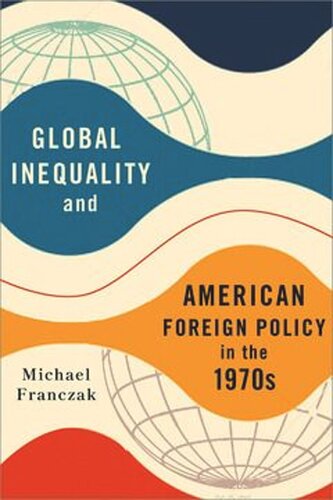

Most ebook files are in PDF format, so you can easily read them using various software such as Foxit Reader or directly on the Google Chrome browser.
Some ebook files are released by publishers in other formats such as .awz, .mobi, .epub, .fb2, etc. You may need to install specific software to read these formats on mobile/PC, such as Calibre.
Please read the tutorial at this link: https://ebookbell.com/faq
We offer FREE conversion to the popular formats you request; however, this may take some time. Therefore, right after payment, please email us, and we will try to provide the service as quickly as possible.
For some exceptional file formats or broken links (if any), please refrain from opening any disputes. Instead, email us first, and we will try to assist within a maximum of 6 hours.
EbookBell Team

0.0
0 reviewsIn Global Inequality and American Foreign Policy in the 1970s, Michael Franczak demonstrates how Third World solidarity around the New International Economic Order (NIEO) forced US presidents from Richard Nixon to Ronald Reagan to consolidate American hegemony over an international economic order under attack abroad and lacking support at home. The goal of the nations that supported NIEO was to negotiate a redistribution of money and power from the global North to the global South. Their weapon was control over the major commodities—in particular oil—that undergirded the prosperity of the US and Europe after World War II.
Using newly available archival sources, as well as interviews with key administration officials, Franczak reveals how the NIEO and "North-South dialogue" negotiations brought global inequality to the forefront US national security. The challenges posed by NIEO became an inflection point for some of the greatest economic, political, and moral crises of 1970s America, including the end of "Golden Age" liberalism and the return of the market, the splintering of the Democratic Party and the building of the Reagan coalition, and the rise of human rights in US foreign policy in the wake of the Vietnam War. The policy debates and decisions toward the NIEO were pivotal moments in the histories of three ideological trends—neoliberalism, neoconservatism, and human rights—that formed the core of America's post-Cold War foreign policy.